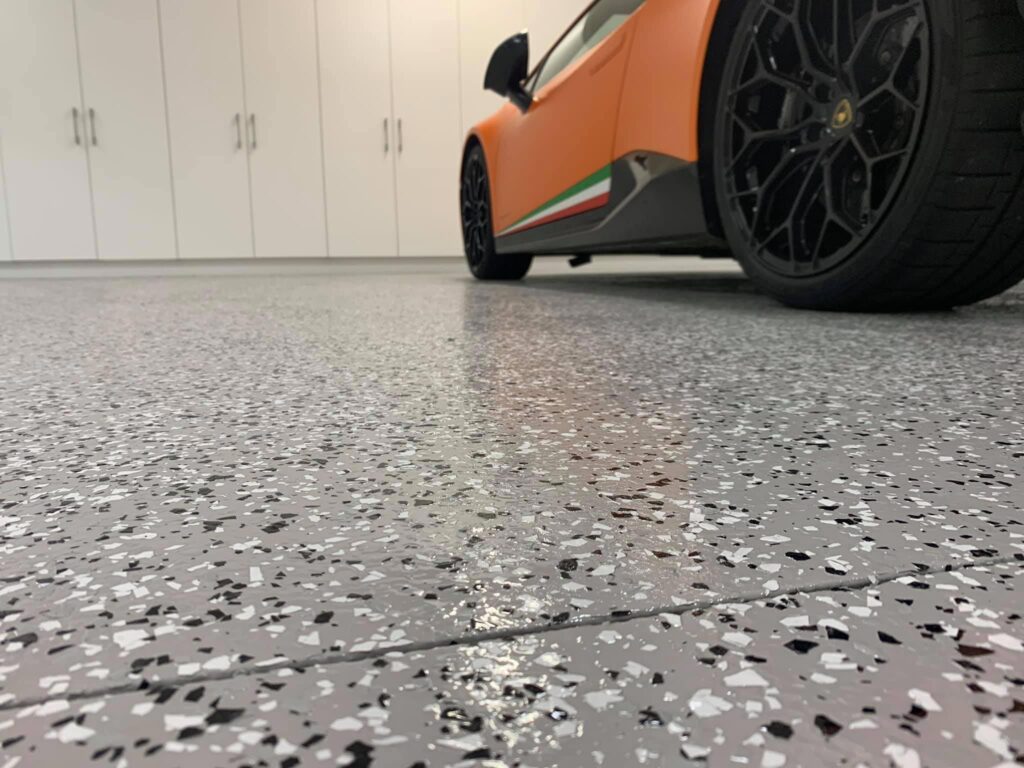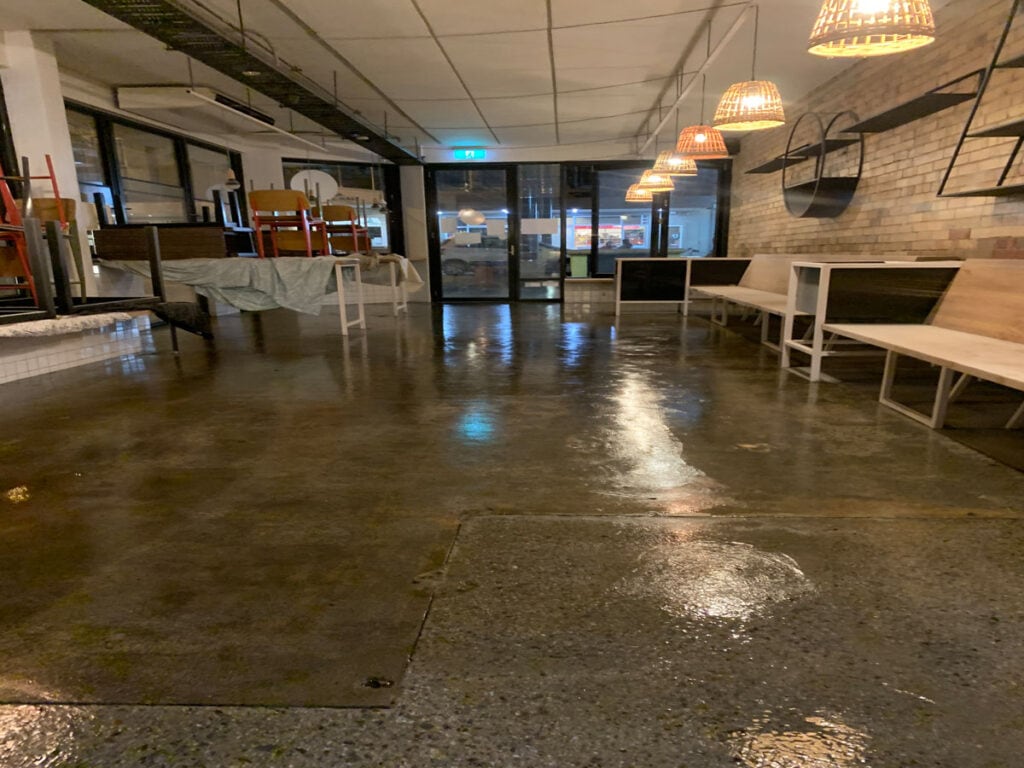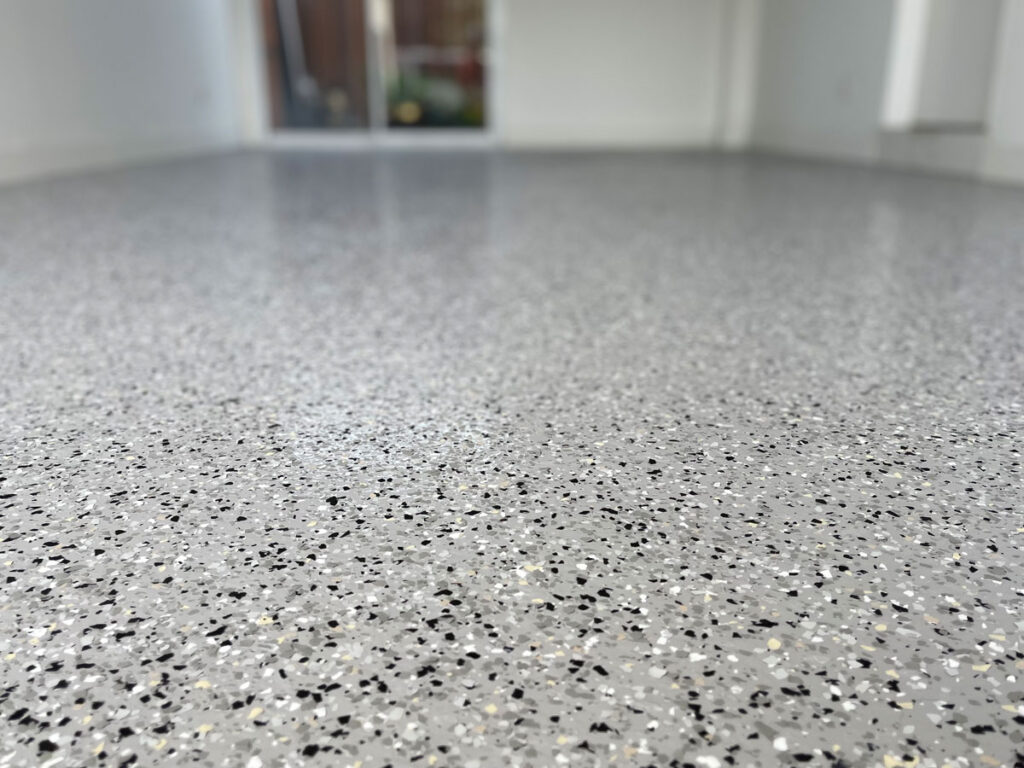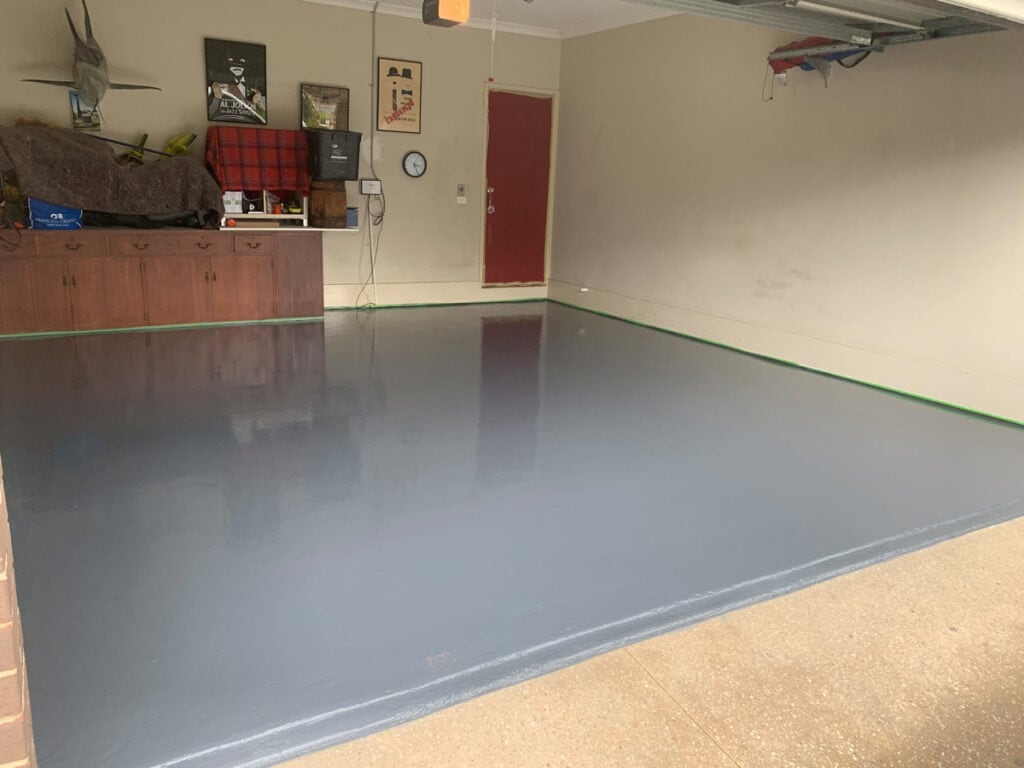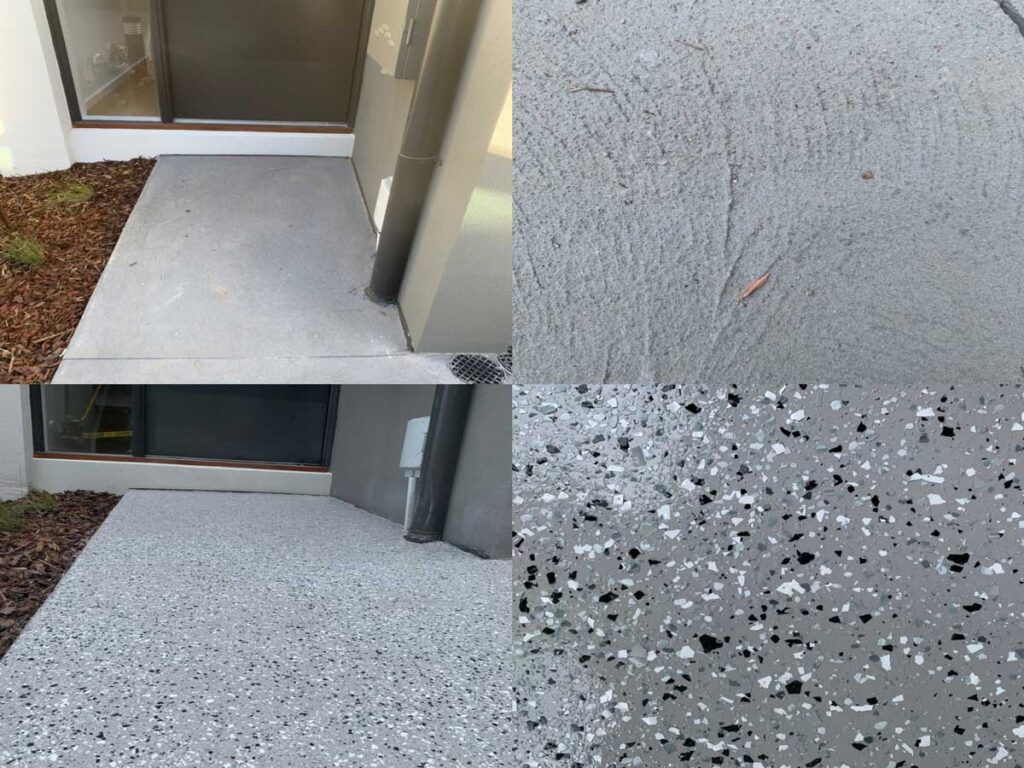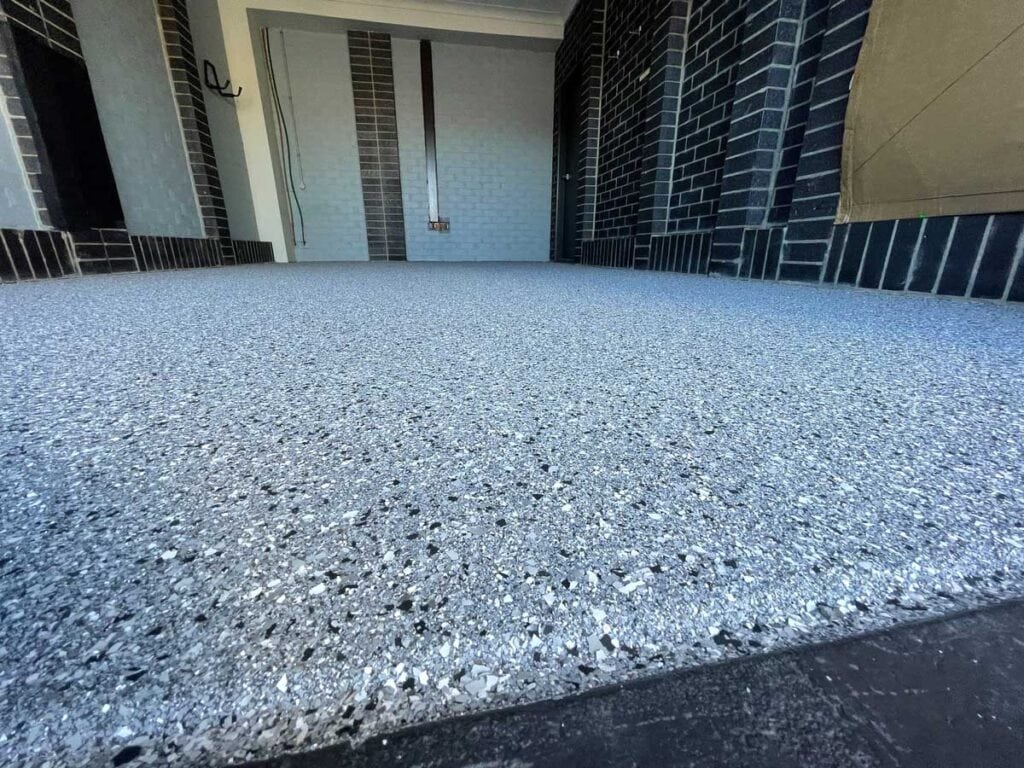As health and safety standards within workplaces increase, particularly within industries around food handling, it is vital to get your commercial kitchen or industrial area set up correctly. With the increased standards for food handling operations and the set-up of commercial kitchens, we understand how this impacts these businesses. However, it requires a long set-up period, which can be challenging and expensive for a new company since anti-slip floors and walls must be customised to meet these requirements.
When you’re a new business, you’re supposed to focus on revenues, not whether the flooring contractors have completed the job properly. That is why we have made it our goal to be the market leader within the commercial epoxy flooring industry. Our company is committed to ensuring our clients receive timely and quality work completed to the highest standards.
Types Of Flooring Options Are Available:
There are two options for slip-resistant flooring that we strongly advise regarding commercial kitchens:
- Epoxy Coating, or
- Epoxy Flake Flooring.
Both of these options are seamless and allow us to bring your kitchen floor to the most optimal and certifiable level for HACCP.
The Process Of Laying A Commercial Kitchen Floor:
After you have hired a company to install your flooring, they will measure the area and discuss the type and colour of commercial epoxy flooring you wish to have. After that, they will install it as follows:
Grind, Patch & Prime
- Captive diamond grinding the concrete to ensure a smooth, clean & porous surface to apply the epoxy coating.
- Patch visible concrete cracks and holes.
- Apply epoxy base coat.
Prime & Flake
- Prime using the applicable epoxy base coat.
- They are broadcasting the flake across the WET epoxy floor coating.
Seal Coatings
Two polyurethane coatings to seal the floor, whether it is plain or flake flooring.
Is Epoxy Floor Cheaper Than Polished Concrete?
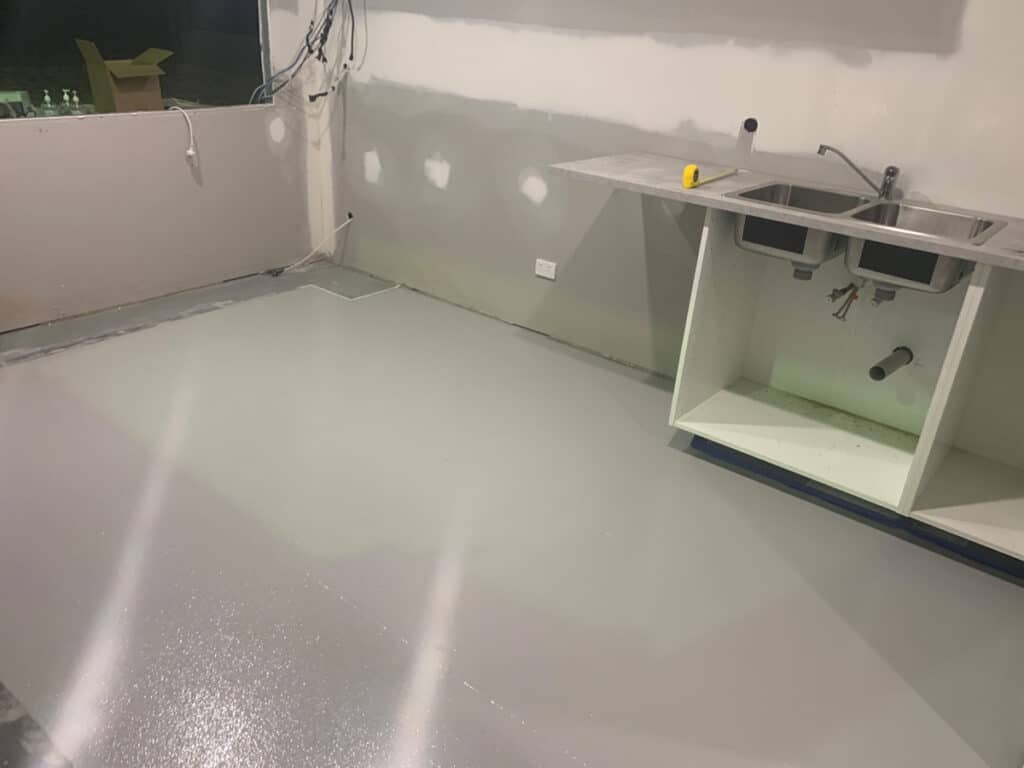
Cost. Applying epoxy resin costs a lot less compared to installing polished concrete. Polished concrete and epoxy are two of the most affordable flooring options in the market.
Does Epoxy Floor Increase Home Value?
Epoxy Garage Floors: The Most Cost-Effective Way to Increase Your Homes Value. Epoxy garage flooring can increase a home’s value by up to $8 per square foot! Considering that an epoxy floor is a relatively fast and comparatively inexpensive upgrade, that’s a lot of money.
Are Epoxy Basement Floors Cold?
Compared to hardwood floors, epoxy without a heating system is cold on your feet. As a result, the epoxy floor feels cold, just like tiled floors. However, this may be addressed by installing an underfloor heating system on your floor.
What Are The Characteristics Of The Best Commercial Kitchen Flooring?
There are plenty of factors to consider when selecting the best flooring option for a commercial kitchen. However, for us, a couple of things stand out most – durability and practicality. While cost is also an essential consideration, we believe that it should only be a secondary concern, especially in the beginning when you’re still figuring out your specific requirements.
Durability
Imagine the foot traffic that the restaurant kitchen is going to get. Every day, there will be chef’s and line cooks going to and from the premises, wait staff coming in and out, large tins and produce trolleys being rolled over it and not to mention sharp and hot equipment being dropped onto it. And these are just the mechanical impacts. There are, of course, other factors such as water and oil spills, food droppings, and the cleaning chemicals at the end of a shift.
As a result, your floor must have high durability and strength. People often consider ceramic, concrete, stone, resin, and epoxy options.
Practicality
Durable materials come in different types, but you cannot choose any of these for your kitchen without considering if they fit your purpose. Hardwood, for example, is certainly a durable material, but it’s not a practical option for a kitchen floor. This type of flooring is vulnerable to moisture and would not withstand the constant presence of people and equipment found in the kitchen.
What Are The Modern Flooring Options Available?
Though you can always go for traditional materials like concrete, tiles, and the like, there are many other options to consider. These materials are specially made for various industrial and commercial applications and are incredibly safe (anti-slip is just one characteristic) and long-lasting. Compared to the above traditional choices, they are also more sanitary, making them great for commercial kitchens.
Resin, in particular, is a popular material because it is resistant to damage and is easy to clean. It also has non-slip properties and can be customised for an enhanced aesthetic appeal. Resins include methyl methacrylate acetate (MMA), epoxy and polyurethane (PU). These are more resilient and hygienic than ordinary concrete or ceramic as they are not porous and thus less susceptible to organisms getting into cracks. Each type also offers distinct benefits depending on where they will be used.
Resin Flooring Options Suitable For A Commercial Kitchen
- Epoxy
- This is probably the most widely used type of flooring solution. It bonds strongly to concrete, providing a great layer of protection for the underlying substrate. It can withstand impact, abrasion, wear, oil, water, and various chemicals often used in cleaning. It is also highly resistant to animal fats that eat into the concrete. However, if epoxy flooring gets damaged, it needs to be completely replaced. It also has a longer curing time, so that any replacements could be costly for a business.
- Methyl methacrylate
- So here’s a fun fact, MMA is an organic compound used to produce polymethyl methacrylate (PMMA) or acrylic glass. This gives you an idea of the high-quality finish you can achieve with it.
- It is a thermoplastic resin customised to suit precise needs such as electrical resistance and non-slippage. It has a very fast cure time, and it can be fully installed over a single weekend to an average-sized kitchen (inclusive of under machinery). It’s also easy to upgrade or repair.
- Polyurethane
- This compound has excellent resistance to abrasion and impact, similar to MMA floors. It is very resistant to direct heat and high temperatures, making it a good choice for kitchens (what’s that saying about ïf you can’t handle the heat…”). Polyurethane is often used in bakeries, specifically in front of ovens where hot trolleys are left to cool down. It comes in various finishes, which can improve impact absorption, but it has a longer curing time than PMMA.
What Commercial Flooring Option Should You Choose?
Different resin flooring materials have specific advantages and disadvantages depending on how you intend to use them and where they will be installed. Use and resilience should be your primary decision drivers. Although it is hard to do, cost should be a secondary consideration as if you get it right at the start, the cost of maintenance will be significantly less over the years.
Another thing to consider is that various chemicals can react differently when spilled on PU or epoxy floors. For example, epoxy flooring can corrode and turn yellow when exposed to the lactic acids found in milk, but Polyurethane flooring won’t have the same reaction. It thus makes sense to consider the chemicals and other liquids your kitchen floor would likely be exposed to and consult with an expert to make the right choice.
Ease of installation and maintenance are other important considerations. For example, epoxy has a long curing time, but Polyurethanes are not always appropriate. On the other hand, MMA flooring is the appropriate option if you wish to have minimal downtime during installation. It’s also the easiest to repair out of the different types.
Professional Commercial Kitchen Flooring
Commercial kitchens have rigorous food safety standards to meet. Having the right floor coating in your commercial kitchen or food production facility makes complying much easier. Kitchen and food production floors need to be easy to clean to stop them from harbouring dirt and bacteria that put your commercial kitchen at risk.
They also need to have good falls to drainage to stop water and waste from pooling. Non-slip floor coating is essential for wet environments to reduce workplace hazards. Professional epoxy flooring systems tick all the boxes for commercial kitchen floor coverings and more.
But not just any installer will do. It would be best if you had the expertise to get the best result, and we could help. With over two decades of experience and an extensive understanding of health and sanitation, we’re Perth’s most trusted commercial kitchen flooring contractor. Our flooring is suitable for a range of facilities involved in food preparation and production, including:
- Aged care and hospital kitchens
- Bakeries
- Cafes and bars
- Canteens and clubs
- Convenience food outlets
- Cool rooms
- Dairies
- Fresh produce processing
- Hospitality
- Meat and seafood processing
- Speciality food retailers and supermarkets
- Wineries, breweries and distilleries
Commercial kitchen flooring installation is in increasing demand throughout Melbourne. We’re experts in providing trouble-free and long-lasting commercial kitchen flooring that stands up to inspection.
Food Standard Floor Coverings
It is essential to have a well-functioning and easy-to-maintain commercial kitchen with non-slip flooring that meets food safety standards. When choosing between epoxy and resin flooring and other traditional options such as vinyl, tiles or other surfaces, keep these criteria in mind:
Food Safe And Antimicrobial
Your health inspector will ensure your facility is appropriate for food safety standards. Epoxy and resin floor coatings can provide you with a hygienic, antimicrobial food grade solution. These seamless and impermeable surfaces give no opportunity for dirt and bacteria to hide in seams or grout.
Easy To Clean
Because of their seamless nature, epoxy and other resin floor coatings are among the easiest surfaces to wash down. Seamless wall-to-wall installation, coving between walls and floors and bunded washing bays can all be created during installation. They help ensure a pristine clean every time. Epoxy and resin flooring bonds with your concrete slab, so there is no underlay or grout for grime or dirt to hide in. In addition, they are impervious to food particles and liquid and stain-resistant.
Non-Slip For Safety
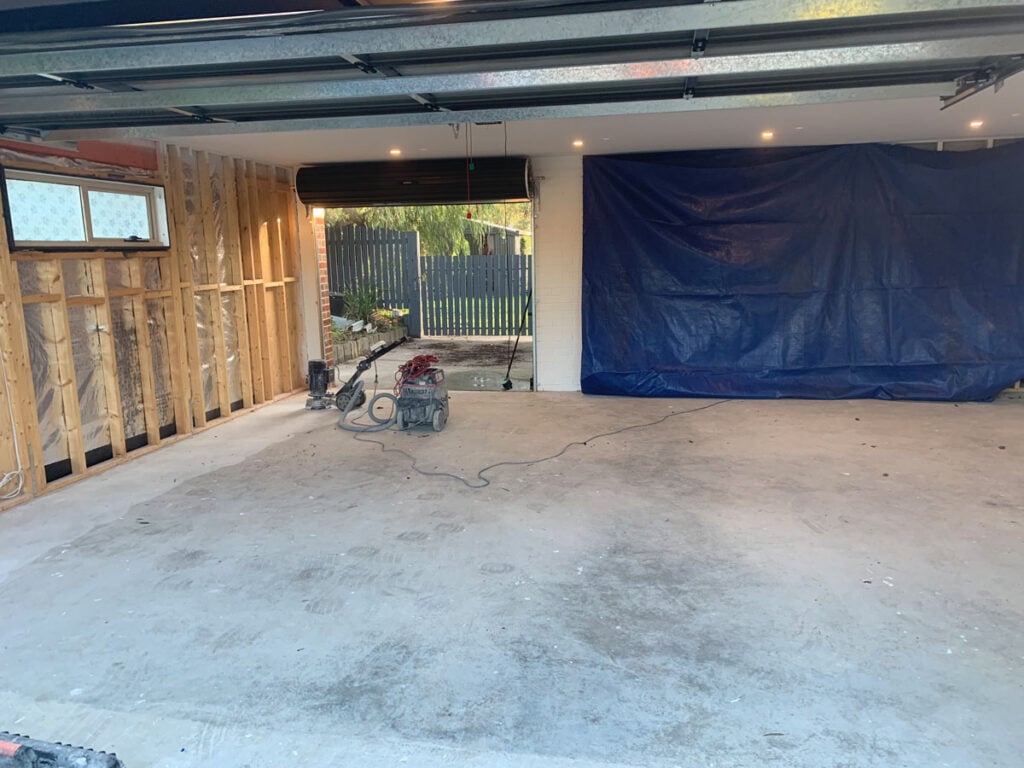
Resin flooring and epoxy flooring can easily include non-slip properties – very important for wet areas or greasy, oily environments. In addition, anti-skid and slip-resistant flooring satisfies workplace safety requirements and ensures your staff are protected from injury and accidents.
Strong And Resistant
We can install epoxy and resin flooring resistant to acids, chemicals and food by-products and built for high impact use. This is a great solution if you need a surface that can stand up to hot oil spills, cold temperatures (such as freezer rooms), heavy machinery traffic, and weight loading. Resin flooring also has excellent non-scratch properties in harsh environments.
Effective Drainage
Excellent drainage is essential for food facilities. Water, cleaning fluids, oil and food waste, can pool on uneven or flat surfaces. These pools become slip hazards or a breeding ground for bacteria. We’ll ensure all the correct preparation work is undertaken to create effective falls to drains. We can take care of floor levelling with our comprehensive surface before installing new surfaces to ensure drainage is optimised.
Attractive Design
When an attractive result is what you want, epoxy and resin floors don’t just function well, they look great. A huge range of colours and decorative finishes are available to make your facilities look fantastic. With decorative flake flooring, finishes can even mirror stone, marble or polished concrete aggregate. Because of their durable, long-lasting nature, resin and epoxy floors maintain their good looks for years.
Benefits Of Installing A Seamless Epoxy Floor:
If you upgrade your commercial kitchen or plan to build a new one, epoxy flooring is the best and most affordable solution. There are many benefits of installing anti-slip flooring into your commercial kitchen:
- Durability & Longevity – Commercial kitchen epoxy floor coatings have a long durable life when installed correctly with suitable preparation. Our loyal clients have often mentioned how the floors have looked new and fresh 5, 8, 10 years even in high traffic areas. If that’s not a testimony, what is?
- Easy to Clean – Commercial epoxy flooring is the optimal solution for cleanliness. The seamless nature of the floor ensures that spills of any substance can be wiped away with ease.
- Stylish & Visually Appealing – Hard flooring is super trendy. In fashion, as this industrial sheik look is in, thus you can rest assured you are getting a timeless finish that will suit future changes you may make to your commercial premise.
- Wide Variety of Colours & Pattern Variations – With a wide variety of colours and styles to choose from, you will find the perfect design to suit your commercial space.
Benefits Of Using Epoxy Floors To Maintain A Hygiene
A commercial kitchen is a busy work environment, and having the right flooring is key. Epoxy floors can be applied to the flooring of your kitchen, making it more resilient and hygienic. Not only is epoxy the best way to maintain a hygienic surface in your kitchen, but it offers many other benefits as well.
Easy To Clean And Maintain
Epoxy resin provides a smooth surface that’s easy to sweep and mop. Messes are common in commercial kitchens, and cleaning your floors in minutes can save you valuable time. Epoxy floors are also seamless, which means you won’t have to worry about anything getting trapped between seams. Your floors will be more resistant to mould and bacteria. You’ll be able to take excellent care of your floors and keep them in great shape.
Can Be Slip Resistant
It’s possible to coat kitchen floors with a non-slip epoxy coating, which can significantly reduce the risk of accidents in your kitchen. In addition, an anti-skid additive can add grit to your floor, which can make your floors less slippery. Kitchen accidents are unfortunately common, but thankfully, epoxy coatings can help prevent them. Installing anti-skid epoxy flooring is a fantastic way to keep everyone in your commercial kitchen safe.
Holds Up Well Over Time
Commercial kitchens see a lot of foot traffic, and because of that, they’re subject to extensive wear and tear. Epoxy can strengthen your floors and increase their durability. When your flooring is coated in epoxy, you’re far less likely to have issues with chipping or cracking. Epoxy is an excellent way to protect your floors and keep them in good condition for many years to come.
Cost-Effective
Replacing kitchen flooring can be expensive. Epoxy coating is an affordable way to protect your floors from damage. Applying a coating to your floors can help prevent damage and increase the lifespan of your flooring. Epoxy coating can also save you money on cleaning and maintenance. Your floors will be easier to care for than ever, which will save you time, money, and stress. Epoxy offers incredible value, especially in commercial kitchens.
Heat Resistant
Epoxy coating can increase the heat resistance of flooring, especially when a high-grade epoxy is used. This is yet another way epoxy can make a commercial kitchen safer. Not only can it protect your floors against damage from boiling water and hot pans, but it can reduce the risk of a fire. Flames and high temperatures are commonplace in commercial kitchens, which is why it’s necessary to take certain precautions.
By applying a coating to your floor, you can avoid heat damage and improve the safety of your kitchen. Epoxy floors are one of the best ways to maintain a hygienic surface in commercial kitchens. In addition, epoxy coating is affordable, efficient, and offers countless benefits.
Conclusion
Ultimately, the crux of your decision should be made by determining what your current and future requirements are so you can make the right selection of flooring to stand up over time. Once you know your requirements, it is time to get in touch with us at Remedial and ask for Goran or one of the teams who will guide you through the different commercial flooring options and provide you with a quote for our installation services.
Frequently Asked Questions About Epoxy Flooring
Typically, epoxy flooring lasts 2 to 3 years in heavy traffic. Commercial properties—like garages, restaurants, or factory spaces—with lots of daily foot traffic can expect this experience. However, with proper care and maintenance, your epoxy flooring may last much longer.
- Strong Application Fumes. During the epoxy application process, wet epoxy gives off an unpleasant smell. ...
- Long Curing Time. ...
- Slippery When Wet. ...
- Economical Flooring Choice. ...
- Resistant to Damage. ...
- Weather-withstanding. ...
- Aesthetically Pleasing. ...
- Protects and Decreases Wear & Tear.
Extremely safe – Epoxy is a very safe coating for your hard floors. It's slip resistant, shock resistant, and less abrasive than concrete and other types of industrial flooring. ... It can also withstand heat of up to 200 degrees, making it a better choice than most other types of flooring when it comes to fire resistance.
Epoxy flooring costs range from $750 to $4,928, with most homeowners spending between $1,320 to $3,080 for both materials and installation. Epoxy coating costs range from $3 to $7 per square foot, depending on the epoxy used and labour costs.
Epoxy Flooring Cost.
- National Average Cost $1,711
- Average Range $1,320 to $3,080
Typically, epoxy flooring lasts 2 to 3 years in heavy traffic. Commercial properties—like garages, restaurants, or factory spaces—with lots of daily foot traffic can expect this experience. However, with proper care and maintenance, your epoxy flooring may last much longer.
